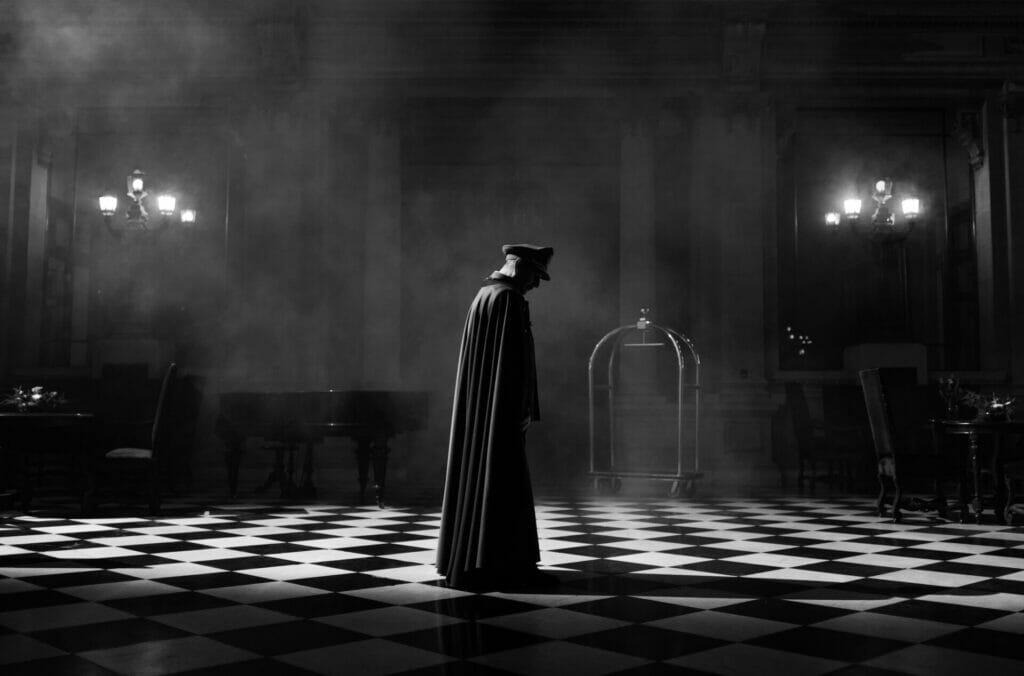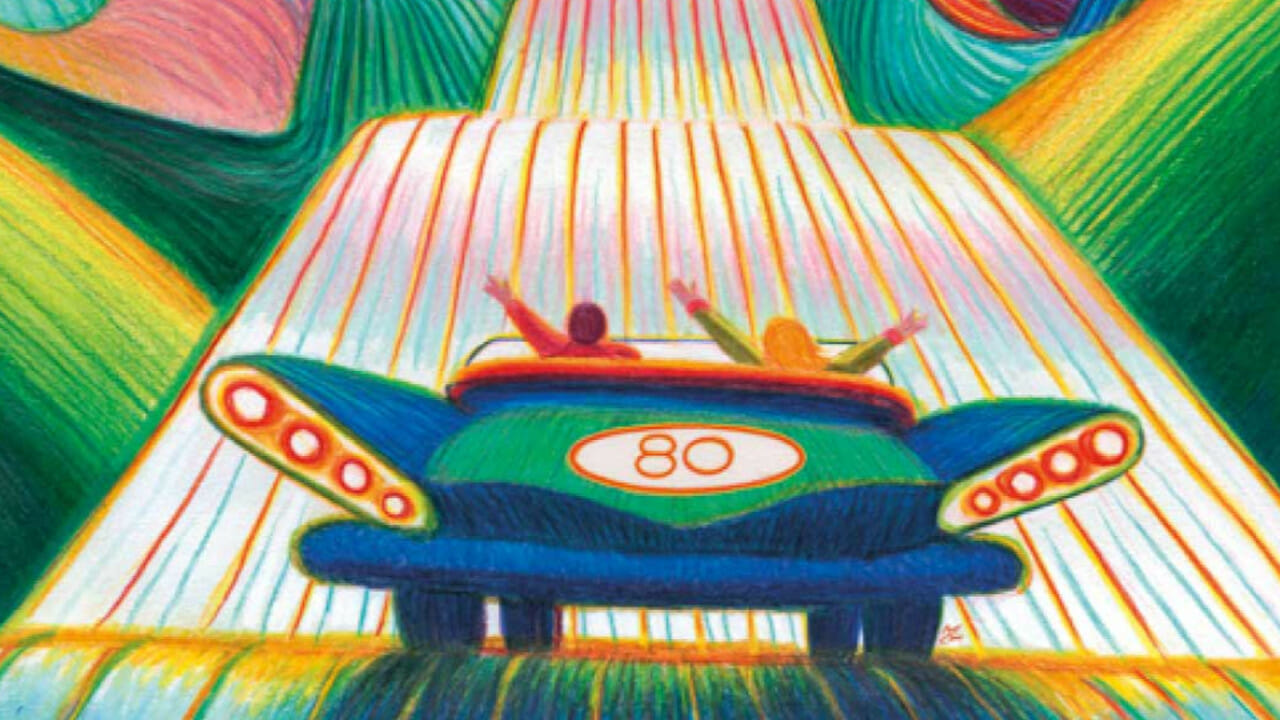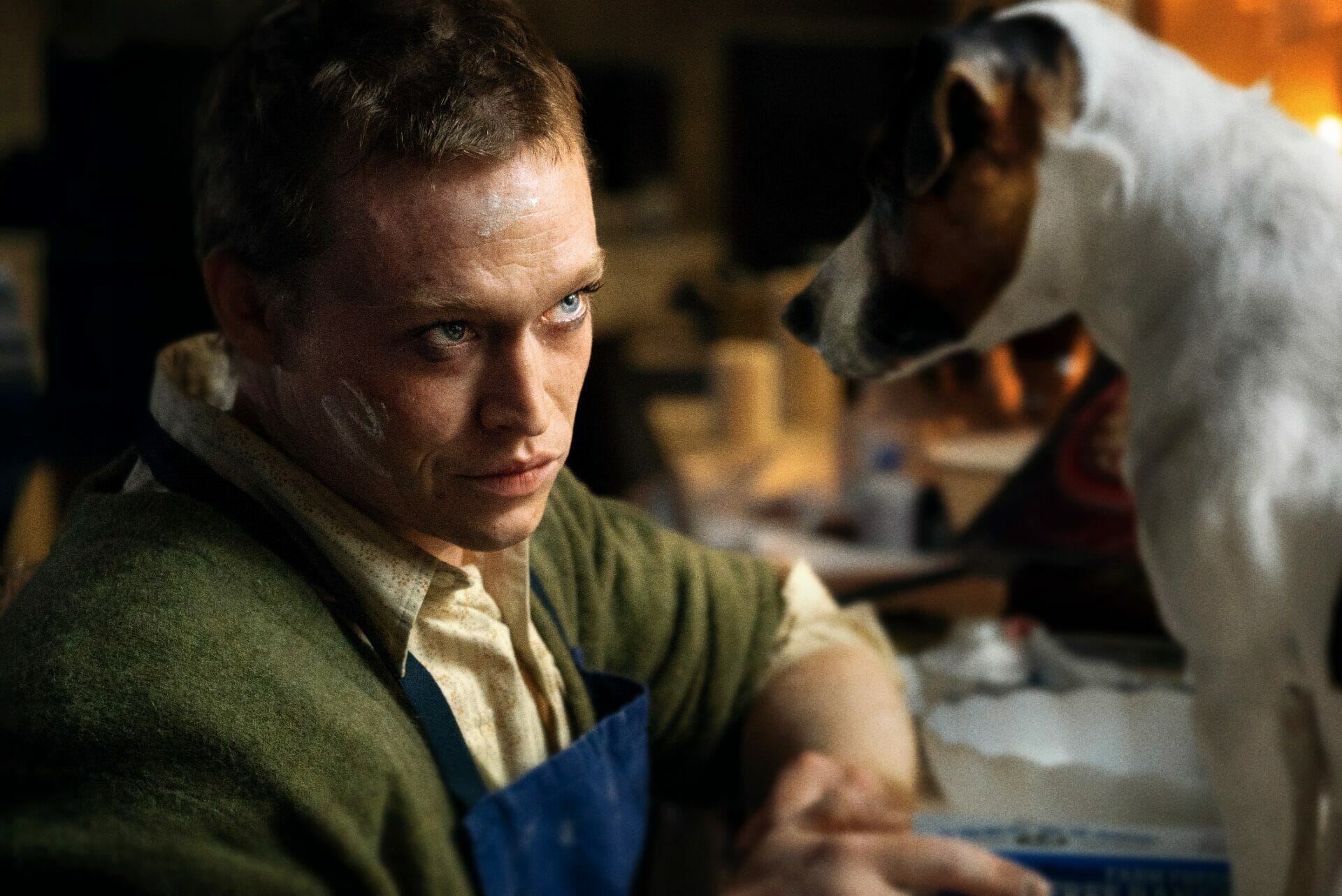
El Conde by Pablo Larraín | Power Runs in the Blood
Runtime
Augusto Pinochet is alive. Or rather, he was never alive: a vampire since the days of the old regime, he is now secretly retired in Chilean Patagonia. But his troubles are far from over. He has lost the will to live forever. His wife demands to be turned into a vampire. And his sons and daughters, eager to cash in their inheritance of embezzled money – as conspicuous as it is hard to get, considering that el conde is immortal – have come up with a bizarre scheme: a pretty young nun with expertise in exorcisms, disguised as an accountant, will soon be their guest. Needless to say, things are going to get bloody.
A regular guest at the Venice International Film Festival – his last three movies, Jackie (2016), Ema (2019), and Spencer (2021), were all screened in competition – Chilean filmmaker Pablo Larraín returns to the Lido with a movie that is a surprising departure from the approach to which he has accustomed his public. With El Conde, the writer-director unleashes a humorous and horrific vein that he has long held in check while staying true to his political ideals of resistance against all kinds of repressive powers.
A biting satire
A Saturday Night Fever-cosplayer willing to kill for his obsession (Tony Manero, 2008). A pathologist’s assistant in love with a political activist confronted with the corpse of Salvador Allende (Post Mortem, 2010). A group of defrocked priests, formerly linked to the regime, confronted with a victim of their past abuses (El Club, 2015). Pablo Larraín has always found poignant metaphors to describe the darkest years of Chilean history and one of the recurring motifs in his work: Pinochet’s military dictatorship. With El Conde (a Netflix production), for the first time he chooses to address the Generalissimo himself, with a metaphor that leaves no room for misinterpretation.
A figure closely associated with authoritarianism (Bram Stoker‘s Dracula was famously inspired by Vlad the Impaler), the vampire is a perfect fit for a commentary against a tyrant who feeds on his people. Larraín and co-writer Guillermo Calderón take a more specific view of the analogy, associating the monster with reactionism.
In their script, the vampire chooses to become a tyrant after the beheading of Marie Antoinette, that is, as a direct result of a revolutionary political movement coming to power. Restauration and ancient and modern regimes are his business, not dealings with the devil. In this sense, the bloodthirsty monster is less an embodiment of pure evil than a serf to the repeating tides of history – the only true agent of inheritance for those close to the throne, since love and family values are but a nuisance. He may be a vampire, but he remains a man of petty, mundane evil.
Not that it makes him any less dangerous. It just reminds the viewer that the all-too-human evil he represents is a very earthly concern.

Latin gothica
Shot in black and white, the movie pays homage to a number of Gothic horror classics – as immortal as their vampire protagonists – especially those from the Expressionist era. More than one shot directly mirrors Friedrich Wilhelm Murnau‘s Nosferatu (1922), and the overall look of the movie is reminiscent of Carl Theodor Dreyer‘s Vampyr (1932), with a touch of Mario Bava‘s Black Sunday (1960) in the gore scenes. Moreover, the look of the nun-exorcist-accountant played by Paula Luchsinger resembles that of Renée Falconetti in The Passion of Joan of Arc (1928), another Dreyer classic. The Gothic genre allows Larraín to exploit the medium in ways he never had before – El Conde is by far his most visually sophisticated movie – while remaining consistent in his storytelling.
Beyond cinephilic self-satisfaction, this stylistic choice serves a clear purpose. As production designer Rodrigo Bazaes puts it:
Decadent imagination and parodic comedy, yet certain scenes would recall with horror the cruelty of a character who caused harm to culture and national coexistence. The visual aspect always had a very clear ethical perspective.
Production designer Rodrigo Bazaes
In other words, it’s the direct result of having such an upfront metaphor as the backbone of the script. It’s style that follows substance to the letter.
On a more general level, it’s what happens when an author ventures into the realm of the Gothic. A genre that is not only fantastic but downright artificial, because it has always derived its appeal from the act of referencing. Stories that recall the legends of bygone times, stories made of other stories to tickle the imagination, while retaining the potential for all kinds of commentary. In Larraín’s case, a particularly political one. In this sense, El Conde is truly (to quote a phrase from other times) “imagination rising to power”.
Tag
Buy a ☕ for Hypercritic








